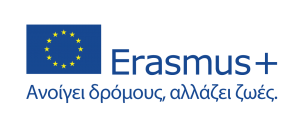Αρχική » TPMs
Αρχείο κατηγορίας TPMs
TPM 3 Kos Models Shaping REF Interventions
REF has extensive experience and knowledge surrounding the types of interventions in and approaches to Roma education. REF currently structures its grants around five good practice models for achieving impact in different countries and policy settings. Embedding effective models for Roma education requires strong partnerships with national and local education authorities and implies intense communication […]
Presentation at TPM 3 Kos Greece Education of Roma Children
The Council of Europe began its involvement with the Roma in 1969 by adopting the first official text on the “situation of Gypsies and other Travellers in Europe”. In 1983 the Council organised the first training seminar for teachers working with Roma children. In 1993 the Roma population was declared a European minority.
Open your mind 1 – go beyond prejudice!
Using a feline metaphor to dispel Roma stereotypes There are nearly 10 million Roma living in the 47 member states of the Council of Europe. They suffer from widespread sterotyping, prejudice and discrimination. This video, aimed mainly at children, uses the metaphor of a black cat, which is discriminated because of its association with witchcraft […]
Open your mind 2- go beyond stereotypes!
There are nearly 10 million Roma living in the 47 member states of the Council of Europe. They suffer from widespread sterotyping and prejudice. In order to open our minds to their true situation we need to start teaching the reality in schools. This video, aimed mainly at children, deals with some common misconceptions concerning the […]
TPM 2 Italy Report
Let’s know each other: Strategy for the Equity Inclusion of Roma Students Project code 2020-1-EL01-KA201-078810 The 2nd Erasmus+ Transnational Project Meeting was held between 24 – 26 of January in 2022, organized by V.E.M. srls, Reggio Calabria and IPALBTUR Villa San Giovanni at Reggio Calabria, Italy. It was the third time that the representatives of […]
TPM 1 Spain Report
1st Report Let’s know each other: Strategy for the Equity Inclusion of Roma Students Project code 2020-1-EL01-KA201-078810 Partners: Gymnasio Zipariou, Kos, Greece ICON Greece ISTITUTO PROFESSIONALE ALBERGHIERO TURISTICO,Italy VEM, Italy Vocational High School of Transport and Transport Management, Bulgaria Agrupamento de Escolas de São João da Talha, Portugal Centro Concertado Leonardo da Vinci, Spain Szolnoki […]
Roma in Italy
Presentations of IPALBTUR about Roma in the area and educational practices for their inclusion IT DID YOU YOU THAT IT Presentation of School Ipalb Tur IT Real opportunities for ROMA students
TPM 2 Italy
Erasmus+ KA 201 Meeting at Ipalb Tur of Villa San Giovanni LET’S KNOW EACH OTHER: STRATEGY FOR THE EQUITY INCLUSION OF ROMA STUDENTS “In addition to the work done together with colleagues, what particularly impressed us and that we were able to appreciate during this visit was the grace and professionalism of the reception of […]





